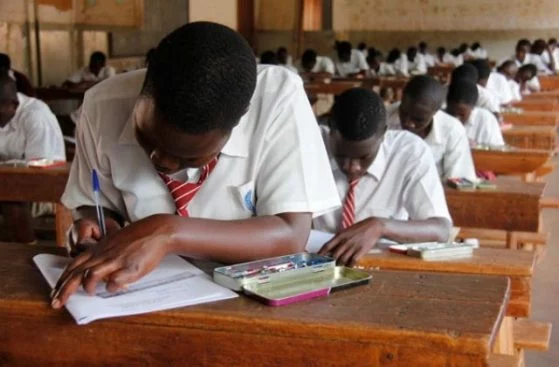Despite efforts by government and examination bodies to clamp down on examination miracle centers in Nigeria, they continue to thrive and enjoy the patronage of people from different classes of society.
The rate of examination malpractice is lowering the standard of education in the country, given that a student who did not really sit down to do a rigorous study to pass his exams will find it difficult to cope when he eventually gets admission to the institution of higher learning.
Unfortunately, high value is being placed on success in the West African Examination Council (WEAC) and National Examination Council (NECO), the agencies that conduct the Senior Secondary Certificate Examinations.
Therefore, certificates obtained from writing Senior Secondary Certificate Examinations (SSCEs) are priority documents in Nigeria and the pressure to obtain these certificates have given rise to endemic examination malpractice. This resulted in the emergence of rogue schools popularly known as miracle examination centres (MECs), which are positioned to make profit by ‘helping’ candidates cheat.
LEADERSHIP investigations revealed that most students are still absconding from their schools and travelling to remote villages to register as external candidates in order to actualise their devious scheme of cheating to pass exams, despite efforts to stop it..
Following rising demands for such desperate students looking for a platform that assists them pass their O’Level certificates and secure high grades for their tertiary school entrance examinations, ‘miracle centers’ have since emerged and are flourishing across the country.
It is also gathered that secondary schools in the country charge between N40,000 to N100,000 to register a single candidate for WAEC. Others charge the same amount or above for both WAEC and NECO, while the official registration is about N18,000 respectively.
Although accurate statistics are not available, there is evidence that many students who obtained five credits in their WASSCE and NECO or even score high grades in JAMB’s UTME, could hardly excel when they gain admission into tertiary institutions.
Examination malpractice has become a terror to the quality of education and has left many educational stakeholders appalled. Recently, WAEC de-registered about 61 secondary schools in Kogi State for gross malpractices in the 2022 WAEC examinations and experts and stakeholders have continued to lament the negative impacts of such organised examination cheating.
Reacting to the rising menace, a Professor at Federal University of Technology, Minna, Gambari Amosa Isiaka said examination malpractice is posing a serious challenge to the education industry and its consequences among students are frightening and devastating.
He said the way forward involves a holistic approach involving all stakeholders, using technological and non-technological solutions.
Isiaka noted that some of the common factors responsible for examination malpractice in Nigeria include poor learning Facilities, inadequate manpower/subject teachers, poor supervision, teacher attitude and methodology, industrial action/insecurity, certificate mentality, parental factors, corruption, poor use of technology, among others.
Commenting on the consequences of examination malpractice, he said any nation noted for it experiences loss of credibility among countries across the globe.
“It has the capacity to destroy the productivity of a nation. The government and major stakeholders should feel sufficiently concerned because of the threat of examination malpractice to the educational system and national development.’
To curb the menace, he recommended a periodic enlightenment campaign on the ills of cheating while urging examination bodies to use technological tools in examination Centres.
“Examination supervisors and invigilators should be trained on how to detect the use of Hi-tech devices for examination malpractice and also equipped to deal with the cheating antics of Net Generation candidates
“Government and other education stakeholders should prioritise education considering the critical roles that it plays in national development.
“Beyond making laws to punish perpetrators of examination malpractice, proactive measures should be put in place to address the various decays in the educational system to discourage malpractices,” he said.
He further said the dangers posed by examination malpractice calls for the need for all educational institutions and examination bodies to embrace cutting edge technologies to improve the quality and integrity of examinations and to mitigate to a large extent, the menace of examination malpractice.
Speaking on the role of security agencies and the challenges of prosecuting examination malpractice cases in Nigeria, an Ass. Professor Rabiu M. Bello said there are constitutional challenges with the process of examination malpractice prosecution in the justice administration in Nigeria.
He said NECO, WAEC and National Board for Technical Education (NBTE) must continue to put the discussion in the public space and interface with State Ministries of Education and other stakeholders to mitigate this cankerworm in the national education system.
Bello also urged examination bodies like NECO to work in harmony with school administrators and proprietors on disciplinary measures and campaigns should be sponsored on social media and school clubs and societies on how examination malpractices have affected our image as a nation
“NECO should consider deploying ICT or using the CBT platform that tertiary institutions of learning use to give examinations some integrity or reliability.”





